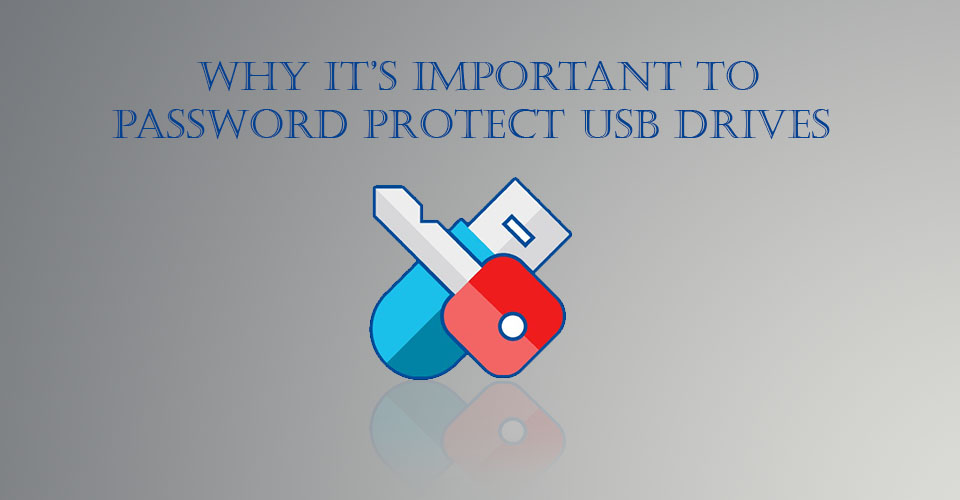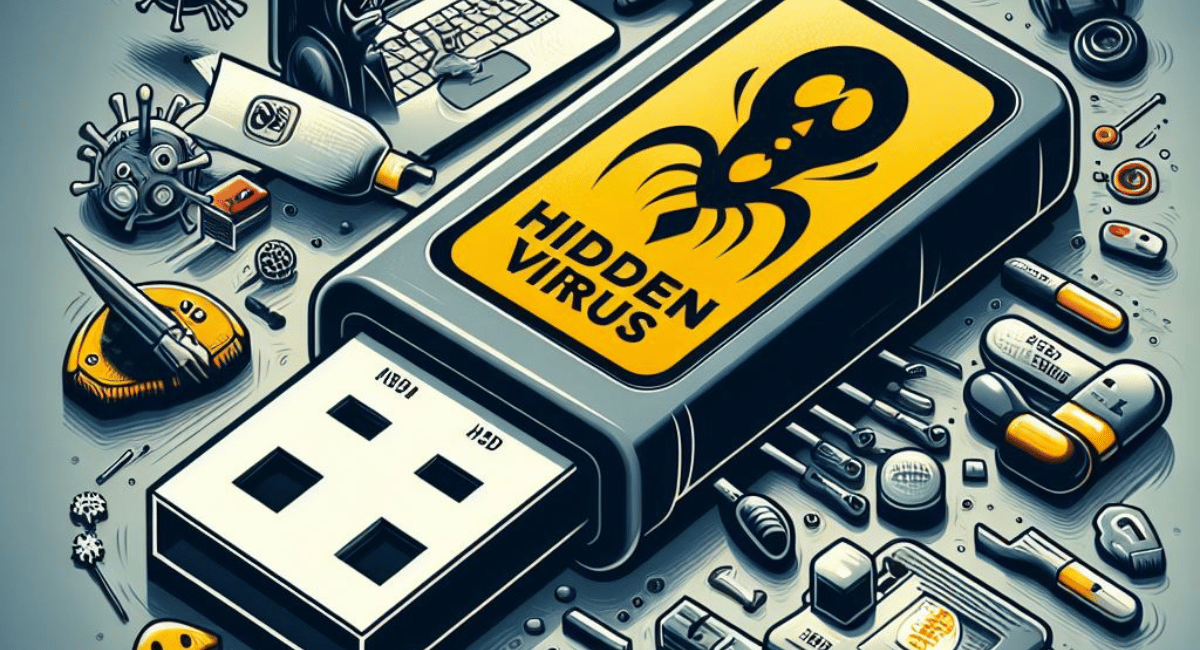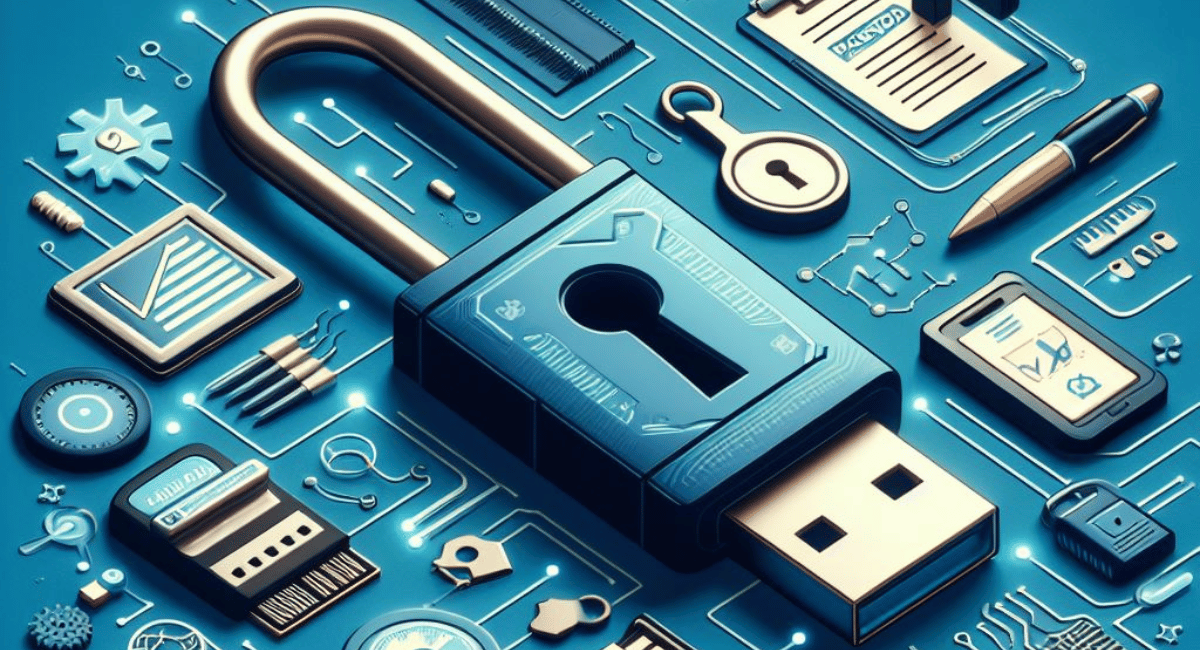Password Protect USB Drive:
Our computers know more about us, than we know ourselves. Every icon you click, every website you visit, every item you view online is being recorded into databases. This makes you think: is your personal data that valuable? The short answer is a big yes! Using your personal browsing habits and preferences, marketing companies are able to use this gather data to better market product and services to your liking. Accordingly, as technology further progresses, the value of data is bound to rise. Already, hackers have expressed that they rather steal personal data than a pot of gold. Why is that so? Well, hackers are easily able to get away with stealing sensitive information – without any fear of incardination. It is easier to convict someone who stole a pot of gold than someone who has stolen personal data – there is > 5 percent chance of convicting a data thief.
If you regularly use a smartphone or computer, you know that these devices come with the option for password protection. The option to password protect computers and smartphones is essential if the user wants his or her data to stay private. Often times, we tend to save critically important details on these devices, be it copies of tax returns, social security numbers, credit card and debit card numbers, street address information or other potentially sensitive details. Nonetheless, you expect your information to be secured and safe, given that most PC and smartphones come with the option that enables password protection.
However, when it comes to USB flash drives, many don’t come with the option that enables password protection. For example, most USB flash drives are capable of saving several gigabytes of data, yet they do not come with a default option to password protect these external drives. Therefore, say for example you own a USB flash drive which is capable of saving several gigabytes of data, and you tend to save very sensitive information on it. Perhaps you’ve saved some images or videos you don’t want anybody to see or you have some important work related files that are considered too risky in case they end up leaking on the web or in worst case scenario, in the hands of a hacker.
Nonetheless, with every problem, there is a solution. In this case, it comes in the form of USB Secure. USB Secure allows everyone, looking to safeguard their valuable data on portable drives, to password protect USB drives in a matter of seconds. USB Secure is dynamic solution to all portable data security worries, as it can be installed on virtually any external drive. Be it on thumb drives, external hard drives, compact flash cards or memory sticks, it works on all of them. Secure USB costs only a few dollars, but can end up saving you a thousands of dollars and a lot of grief in the long run. In a nutshell, it more than just pays for itself. It saves you from data leak catastrophes.
Why Do I Have To Encrypt My USB Drive?

Encrypting your USB drive helps protect your data from unauthorized access. By encrypting the drive, your data is kept safe from hackers and other malicious actors who may be trying to access it. Encryption also helps protect against physical theft, as the data on the drive will be unreadable without the correct password or encryption key.
Is USB Security Necessary?
Yes, USB security is necessary. It is important to protect your data from unauthorized access and to prevent malicious programs from being installed on your computer. USB security can be achieved by using encryption, password protection, and physical security measures such as locks or physical barriers.
Can Viruses Hide In USB?

Yes, viruses can hide in USB drives. USB drives can be used to store and transfer malicious software, such as viruses, worms, and Trojans.
Can Encrypted USB Be Hacked?
Yes, encrypted USB drives can be hacked. Encryption does not guarantee complete protection from malicious actors as encryption algorithms can be cracked or bypassed.
Can A USB Stick Steal Data?
Yes, a USB stick can be used to steal data. USB sticks are commonly used to store confidential files, and it is possible for malicious actors to access this data without the user’s knowledge.
Can USB Drives Be Password Protected?

Yes, USB drives can be password protected. Password protection is a great way to ensure the security of the data stored on the drive, as it requires a user to enter a password before they can access the data.
Best Way To Protect Data On A USB Drive
The best way to protect data on a USB drive is to use encryption. Encryption scrambles the data stored on the drive so that it can only be accessed by someone with the correct decryption key. Additionally, it is important to use a strong password to protect the drive from unauthorized access. Finally, it is also important to regularly back up the data stored on the USB drive to ensure that it is not lost in the case of a hardware failure. Finally users should also consider using a physical lock or other physical security measures to protect the USB drive from physical theft.
Duration of Data Safety On A USB Stick
The length of time that data is safe on a USB stick depends on several factors, including the type of encryption used, the strength of the password protecting the drive, and how often the drive is backed up. Generally, data stored on a USB stick is safe as long as the encryption and password are kept up to date and the drive is regularly backed up. However, it is important to note that data stored on a USB stick can still be vulnerable to physical theft, malware, and other.
How Do I Know If Someone Has Accessed My USB Drive?
There are a few ways to tell if someone has accessed your USB drive. First, you can check for any unusual activity on the drive, such as files being moved, deleted, or modified. Additionally, you can check for any changes to the drive’s security settings, such as a new password or encryption. Finally, you can use a USB monitoring program to monitor the activity on the drive, which can alert you if someone is accessing your data.
Why You Should Not Let Any Other Person Connect The USB Storage Device Into Your Computer?
You should not let any other person connect the USB storage device into your computer because it is possible for them to copy data from your computer or to install malicious software onto your computer. Additionally, connecting a USB storage device to your computer could put your data at risk, as the other person could access your data without your knowledge or permission.
Is It Important That The Data Stored On USB Drives Is Encrypted?
Yes, it is important that the data stored on USB drives is encrypted. Encryption helps to protect the data from being accessed by unauthorized individuals. Encryption also helps to ensure that the data is not corrupted in any way. Additionally, encryption helps to ensure that the data is not easily copied or stolen.
Importance Of File Encryption
It is important to encrypt files because it provides an extra layer of security to protect the data from being accessed by unauthorized individuals. Encryption helps to ensure that the data is not easily copied or stolen, and it also helps to protect the data from being corrupted in any way. Additionally, encryption helps to ensure that the data is not accessed without the user’s knowledge or permission.
Why Is USB Considered A Risk?
USB devices are considered a risk because they can easily be plugged into any computer, allowing the user to transfer data to or from the device without the user’s knowledge or permission. Additionally, USB devices can be used to transfer malicious software, malware, or viruses, potentially compromising the security of the computer.
Can Hackers Access USB?
Yes, hackers can access USB devices. Hackers can exploit vulnerabilities in the USB protocol or use malicious software to gain access to a USB device. Additionally, USB devices that are not properly secured can be accessed by hackers, allowing them to access the data stored on the device.
Biggest Threat Posed By USB Technology
The single biggest threat posed by USB technology is the potential for malicious actors to use USB devices to install malware or viruses on a computer. USB devices can be used to transfer malicious software, malware, or viruses, potentially compromising the security of the computer.
